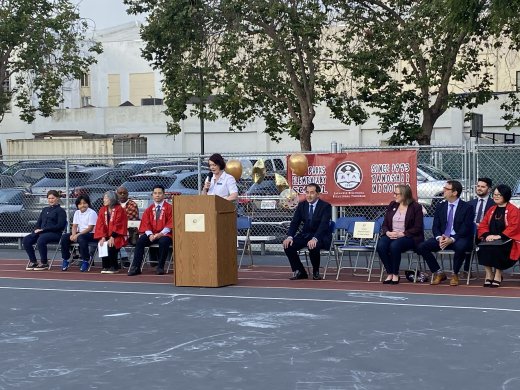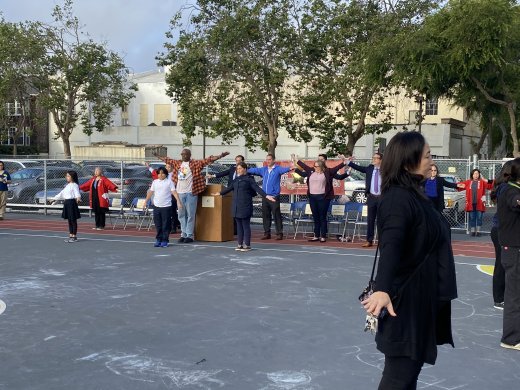Rosa Parks Elementary Celebrates 50 Years of the Japanese Bilingual Bicultural Program Link to this section

Principal Laura Schmidt-Nojima delivers opening remarks at the Rosa Parks JBBP Anniversary celebration.
On Sept. 5, the Rosa Parks Elementary School community celebrated the Golden Anniversary of the Japanese Bilingual Bicultural Program, marking the exact day that the program began 50 years ago. The festivities included remarks by school and parent leaders, special guests, student representatives, and alumni, and a Radio Taiso routine which the community partakes in every Tuesday and Thursday before school starts. The golden anniversary of the program marks half a century of teaching Japanese language through culture and community.
On Sept. 5, 1973, the Japanese Bilingual Bicultural Program (JBBP) at Rosa Parks began with three K - 2nd grade classes at Emerson Elementary School (known today as Cobb Elementary School).

Rosa Parks students, staff, and JBBP ceremony attendees participate in Radio Taiso, a traditional Japanese stretching routine.
A signature program of SFUSD and the only program of its kind in Northern California, JBBP students experience one hour of formal Japanese language and culture on a daily basis delivered by native-speaking Japanese instructors, or sensei, who work closely with classroom teachers to integrate Japanese instruction with core curriculum content. Classroom teachers also maximize exposure to Japanese language and culture throughout the day in keeping with Japanese standards established for each grade.
Since its establishment, JBBP has educated thousands of public school students in San Francisco, offering a curriculum shaped by and anchored in the Japanese and Japanese-American experience and community.
This page was last updated on September 14, 2023

